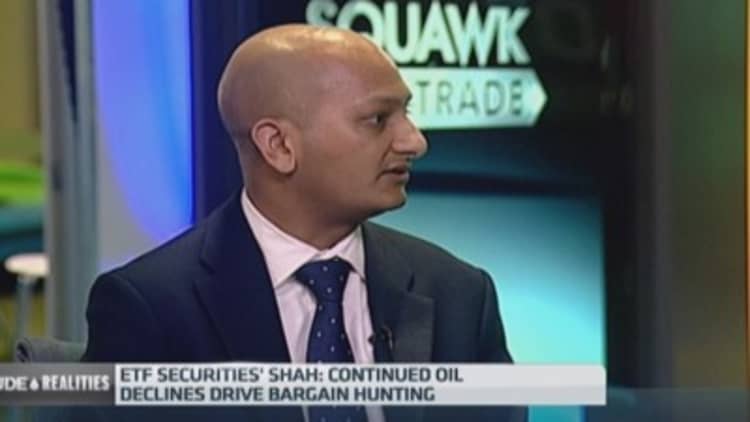
Oil prices continued their dramatic slump to near-six-year lows on Tuesday, as an oil minister from OPEC (Organization of the Petroleum Exporting Countries) reiterated that the group would not be changing its production strategy.
WTI crude for February delivery fell below $45 a barrel on Tuesday morning for the first time since April 2009 and was trading at $44.87 a barrel at 2.00 p.m. GMT. Brent crude futures lost around 3 percent in the morning session and were trading at $45.94 a barrel. Both have crashed by around 60 percent since mid-June last year.
Weak global demand and booming U.S. shale oil production are seen as two key reasons behind the price plunge, as well as OPEC's reluctance to cut its output.
This latter factor compounded oil's fall further on Tuesday, following a speech by United Arab Emirates Oil Minister Suhail bin Mohammed al-Mazroui at an energy conference in Abu Dhabi.
"The strategy will not change," he said, according to Reuters.
In a wide-ranging address, Mazroui added that oil producers needed to be rational and, like OPEC, needed to look at growth in international markets. He added that current oil prices weren't justified, but that he did not expect any sudden rebound, with prices potentially stabilizing over the next two-to-three years.
OPEC, a group of 12 major oil producers, decided not to cut production at its meeting in November, further fueling sliding prices, and Mazroui stated that the organization had no intention to meet again until June.
"There's clearly a price war going on," Nitesh Shah, a research analyst at ETF Securities told CNBC Tuesday.
Mazroui also criticized shale oil producers for causing but added that shale oil was an important part of the market.
Shale producers should become swing producers, he said, according to Dow Jones. Currently, Saudi Arabia is seen as the main swing producer as it is able to increase or decrease supply at minimal cost, and has spare production capacity.
Some analysts have told CNBC that there is a global "game of chicken" being played out between the Gulf states and U.S. shale producers, over who can absorb the dip in prices and not cut back on production.
Shah added that OPEC would only cut back if producers in the U.S. did something similar and showed more "willingness" to cut simultaneously.
"It's very unlikely for oil prices to remain sustainable at these levels," Shah said. "It's now becoming bit more of a political game -- who can hold out for longer?"
Meanwhile, Iranian President Hassan Rouhani also commented on the oil rout Tuesday. He said that the countries behind the oil slide would regret their decision not to cut, in an interview on state TV which was quoted by Dow Jones.
"If Iran suffers from the drop in oil prices, know that other oil-producing countries such as Saudi Arabia and Kuwait will suffer more than Iran," he said, according to the news agency.
Tuesday's fall comes despite trade data out from China showing record crude imports by the world's second-largest economy.
It comes after Goldman Sachs slashed its price forecasts for oil on Monday.
On a three-, six- and 12-month basis, the bank now sees Brent at $42, $43 and $70 a barrel, respectively. This is down from previous estimates of $80, $85 and $90 a barrel. For WTI, it has targets of $41, $39 and $65 a barrel, down from previous estimates of $70, $75 and $80.


